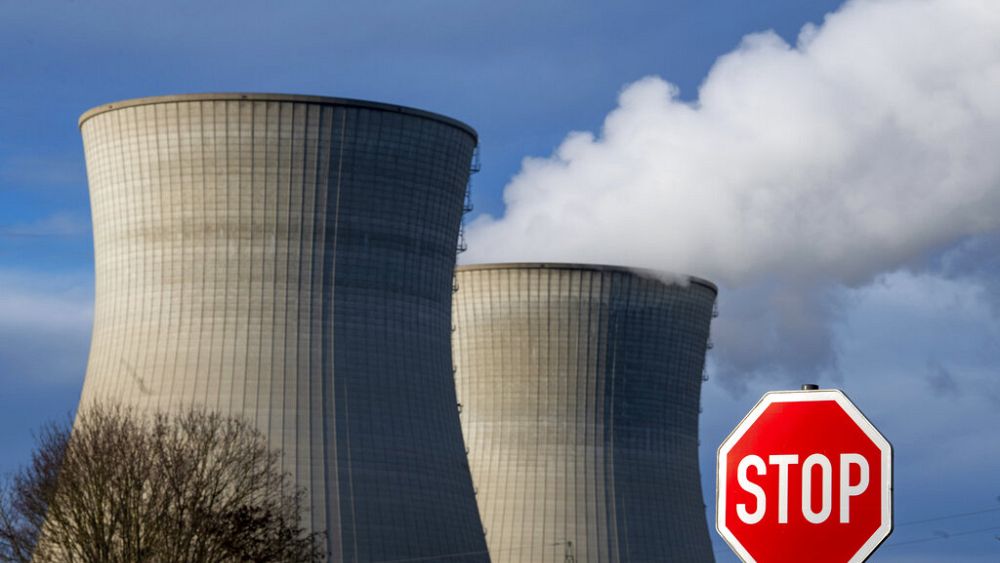
Defining nuclear and gas as sustainable has led to calls of greenwashing, threats of legal action from some EU countries and a lot of column inches dedicated to the obscurely titled ‘taxonomy’ system.
But what is all the fuss about?
On Wednesday, the European Commission is set to sign off on its latest plans for the EU’s taxonomy labelling system, which helps private investors identify which energy investments are sustainable.
The aim is to direct money into sustainable energy sources and help the bloc achieve its ambitious plan of being carbon neutral by 2050.
The current proposal has caused a stir by labelling nuclear and gas as sustainable sources of energy, something that has caused outrage from green activists and organisations.
When the Commission adopts the act, the Parliament and Council will have two months to raise any objections. Failing this, it will enter into force.
A majority of MEPs or 20 out of 27 member states could block the plans, but before that happens the arguments for and against marking the two energy sources as sustainable will have to be laid out.
So, what are they?
Nuclear energy
For many, nuclear represents the perfect opportunity to maximise energy output, while minimising carbon emissions. For others, it symbolises just another environmental problem, with a solution to the disposal of radioactive waste yet to be found.
For French MEP Christophe Grudler, there is no other alternative but to include nuclear energy as a sustainable source.
“If we want to meet the Green Deal goals, we have no choice. We have to include nuclear in the taxonomy,” Grudler told Euronews.
“The question is, do we want to meet the Green Deal goals? If we want to do it, we need decarbonised energy, like nuclear. The Commission said we need around 15% of nuclear in the energy mix in 2050 to meet the goal.”
On nuclear waste, the European lawmaker – who is member of French President Emmanuel Macron’s ‘La République En Marche!’ party – says people are working hard to find an answer to the problem.
“Of course, we will look forward in order to have no more waste. So, it’s a very important topic, too. But step by step, a lot of researchers are looking to find solutions for the waste coming from nuclear. But at this time, we need nuclear technology,” Grudler said.
But German Green MEP Michael Bloss says it is simply not right to label nuclear as sustainable.
“We want to have the taxonomy for what it is meant for, which is channelling money to sustainable solutions like renewables, but calling nuclear and gas sustainable is just not correct. You have to call things that are sustainable, sustainable, and not all things,” he said.
Bloss added that he believes it is France, that has a large nuclear industry, which is urging the Commission for its inclusion in the EU’s taxonomy portfolio.
“I think that the Commission is pushed very much by France…it is the French trying to put their own nuclear power plant park into the sustainability label,” the German told Euronews. “It’s actually really only favouring the French and favouring Macron.”
Gas energy
While carbon emissions from nuclear remain very low, gas is another story.
The Commission accepts that gas is a fossil fuel, but says it is needed as a transition energy to meet the objectives of the Green Deal.
Bloss, however, acknowledges that in some cases gas may be necessary, but it is still not sustainable.
“If you look at the conditions [in the taxonomy] for gas, they are made for gas power plants that are a back up to the energy system, and that’s fine. You know, in a renewable world, there might be times when no sun is shining or no wind is blowing, so you need to have some backup capacity. And that’s good,” the Green MEP said.
“But what we need to discuss now is how does this new climate-neutral reality look like? And in the climate-neutral reality, there is no fossil gas, so labelling fossil gas as sustainable just does not make sense,” he said0
But French MEP Grudler says although gas is not his preferred energy source, he accepts that as a transition fuel it is the quickest way to reduce carbon emissions from coal.
“The most important thing is to stop coal because it’s the worst – a lot of CO2 emission. And with gas, of course, we will have half the emissions compared to coal and we can do it very quickly. We have a goal of 2030. If we use gas, we can stop very quickly with coal emissions,” Grudler said.